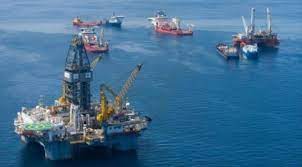Natural gas will remain a significant energy source through 2050, according to the president of ExxonMobil’s Cyprus unit, and volumes of the hydrocarbon discovered off the east Mediterranean island country of Cyprus might reach markets via a pipeline or by liquefying it for shipping.
Varnavas Theodossiou, the senior country manager for ExxonMobil Cyprus, said: “all energy sources remain vital” for the next three decades “across a spectrum” of scenarios outlined in the Paris Agreement on climate change as the world switches to cleaner fuels in pursuit of a zero-emissions target.
He told reporters via email that combining a pipeline with ship-transported liquefied gas may help get the hydrocarbon to market.
Cyprus has had “relatively little” exploration work so far, according to Theodossiou, and is considered a “frontier exploration location” with “substantial geologic uncertainty” regarding the amount of gas buried in pockets beneath the seabed.
Although recent finds in the region, including Egypt’s vast Zohr field, suggest that “geology can vary dramatically over short distances,” “we will really know what’s there” only with a “well designed and performed seismic and drilling program,” Theodossiou said.
The Cyprus government has awarded ExxonMobil and its partner Qatar Energy permits to conduct exploratory drilling in two of the 13 blocks inside its exclusive economic zone off its southern coast.
ExxonMobil discovered a deposit expected to hold 5-9 trillion cubic feet of gas in one of these blocks and is currently drilling an appraisal well to gain a more exact estimate of the hydrocarbon’s “quantity and grade.”
Theodossiou’s assessments and testing on the well-named “Glaucus-1” are anticipated to be finished in March, but it will take “a few months” before the data obtained can be analyzed to “give us a better understanding… and to drive our next actions.”
He stated that preparations are already in place to begin gathering seismic data in the partnership’s second block later this year.
A partnership consisting of Total of France and Eni of Italy has also been given drilling rights for seven blocks by the Cypriot government. The consortium declared a “promising gas discovery” in 2018, but didn’t reveal any details until more research was finished.
Noble Energy, which was eventually purchased by Chevron, discovered the first gas resource off the coast of Cyprus in 2011. The gas in that deposit is estimated to be 4.5 trillion cubic feet.

















